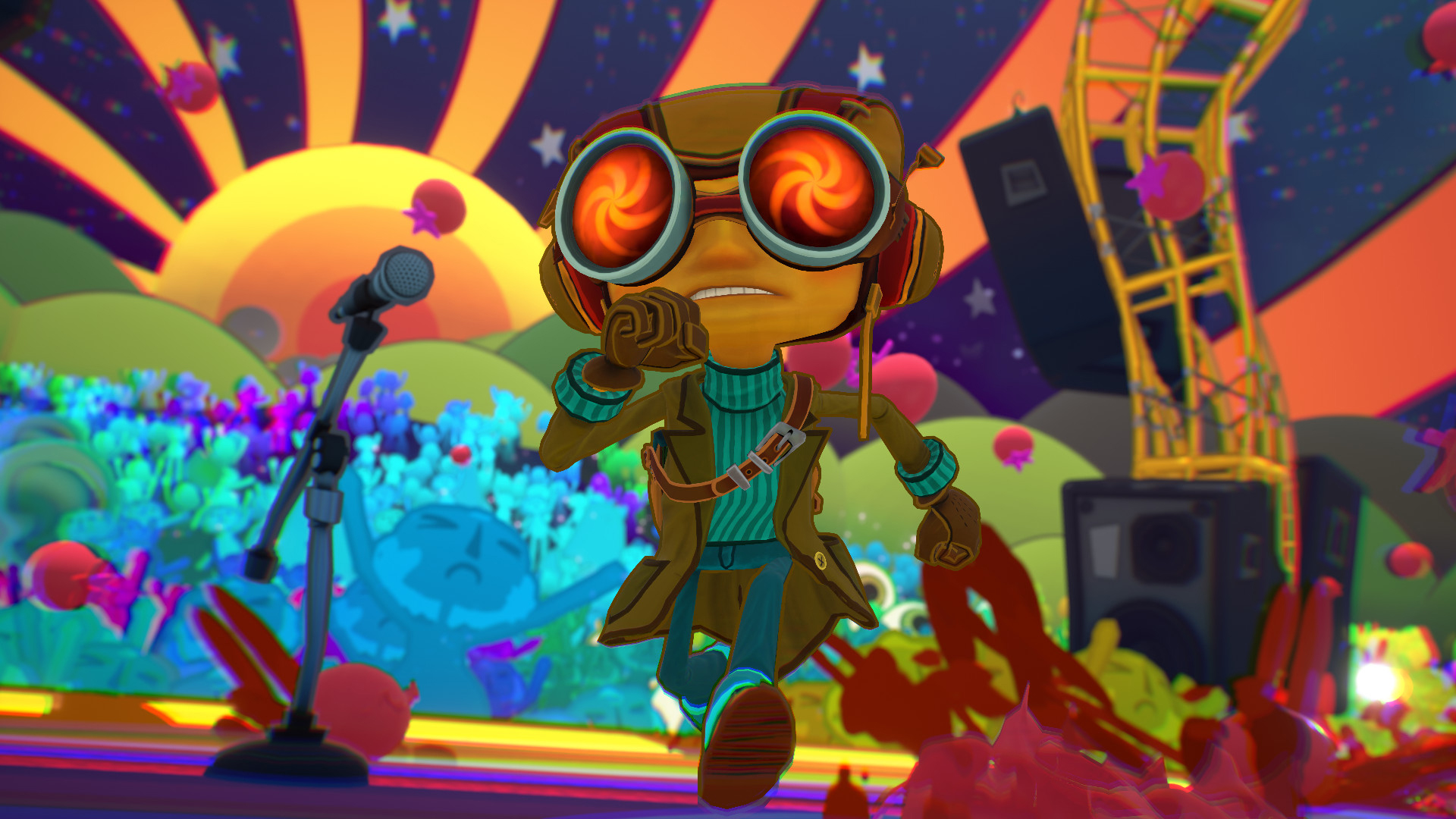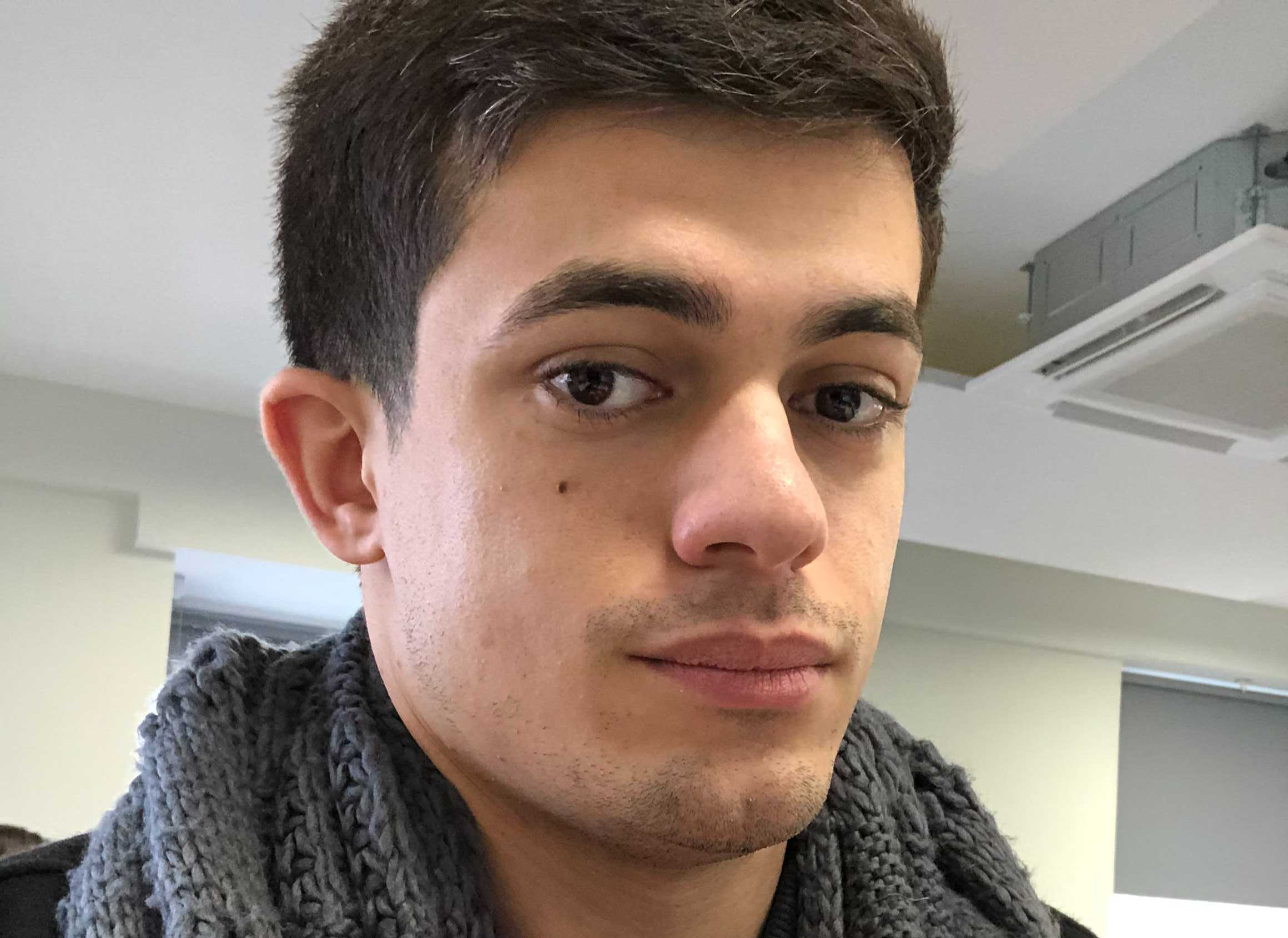Psychonauts 2 was designed as the "complete opposite" of an FPS, because Tim Schafer wanted players to leave levels in a better condition than they found them
Double Fine co-founder Tim Schafer looked to action games and shooters when planning out Psychonauts 2's levels

Psychonauts 2 was deliberately designed as the opposite of an action game or a shooter, in that protagonist Raz should leave every level in a better condition than when he entered it.
Speaking at Develop: Brighton 2024, Double Fine marketing and communications director James Spafford recalled how studio co-founder and Psychonauts 2 director Tim Schafer had told him about his approach to minds in the sequel. Schafer expressed that levels in Psychonauts 2 should be the "complete opposite" of what happens in a shooter.
"When you're playing an FPS or an action game, guns are blazing, bullets are flying, there are explosions everywhere, and by the time the round is over the whole level has been decimated, there's rubble and dust, everything's been destroyed," Spafford recalled Schafer saying. Psychonauts 2 is the inverse of that, in that "Raz should always leave minds in a better shape and a better condition than when he entered them," Schafer had said.
"You're helping clear other people's emotional baggage, getting rid of unwanted thoughts. You're healing people, and the game is about healing, but Raz isn't fixing people," Spafford continued, speaking to protagonist Raz's overarching mission whenever he enters the minds of other characters in Psychonauts 2.
Spafford also reflected on the original Psychonauts, which saw characters with mental health issues locked away in asylum-type areas. The Double Fine lead expressed that this was an area of the original game that could have been handled better, and ultimately lead the Psychonauts studio to take better care of mental health topics when making Psychonauts 2.
"Cultural awareness of mental health issues had progressed significantly since the last game, and we knew that we'd end up exploring these relations again, but at least this time we could go into the project thinking about this stuff ahead of time. It was important to take a more thoughtful approach. The aim is to keep things lighthearted without making light of very real issues," Spafford said.
The dev added that Double Fine would "take stock" and see what it had learned from making Psychonauts, and apply it to the sequel. "In Psychonauts 1 we'd established that everyone was redeemable, they just might be dealing with things. Having mental health issues doesn't make you a bad person, and so we were very careful not to fall into that trap in Psychonauts 2," Spafford continued.
Sign up to the GamesRadar+ Newsletter
Weekly digests, tales from the communities you love, and more
Spafford's talk also addressed working with charity Take This, and the benefits of getting in playtesters from a mental health foundation to play Psychonauts 2 ahead of release. These testers are what ultimately lead to Psychonauts 2's in-game warning screen to players when booted up, that it would be tackling topics such as "addiction, PTSD, panic attacks, anxiety, and delusion."
The Double Fine lead also spoke about how Special Effect's players then further fed back, and further improved Psychonauts 2's warning screen even after launch. A line about the Double Fine sequel potentially being harmful to those with dental phobia was then added, for example, ultimately leading to a stronger and better message for those heading into the game.
Hirun Cryer is a freelance reporter and writer with Gamesradar+ based out of U.K. After earning a degree in American History specializing in journalism, cinema, literature, and history, he stepped into the games writing world, with a focus on shooters, indie games, and RPGs, and has since been the recipient of the MCV 30 Under 30 award for 2021. In his spare time he freelances with other outlets around the industry, practices Japanese, and enjoys contemporary manga and anime.



